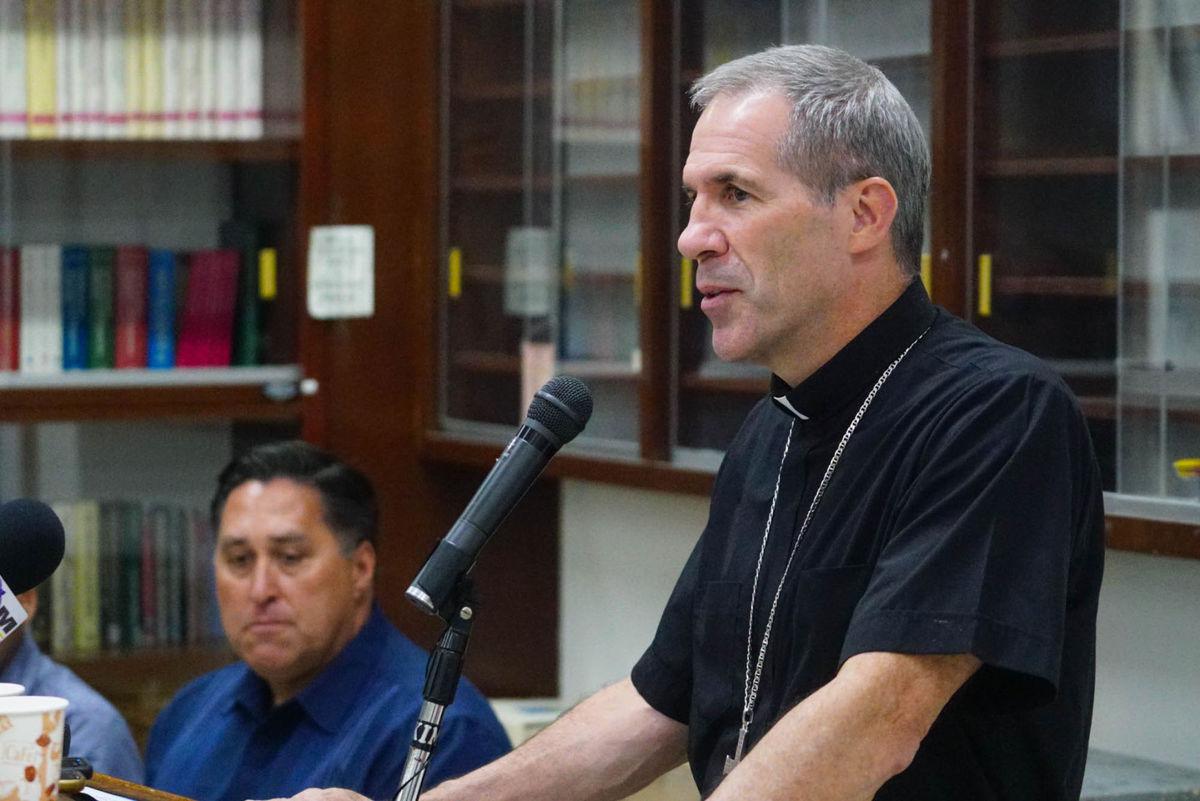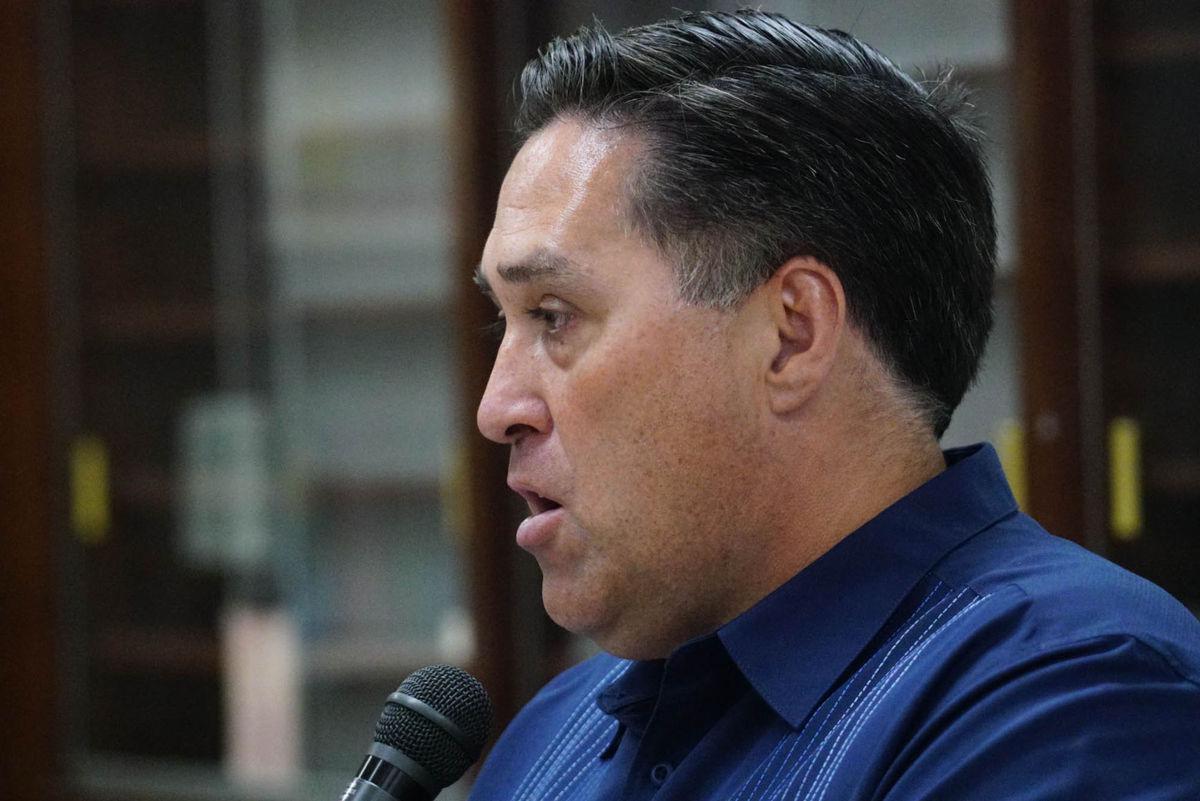|
Archdiocese moves to dismiss 36 sex abuse cases
By Neil Pang
The Archdiocese of Agana has asked the District Court of Guam to dismiss the 36 pending child sexual abuse cases that have been filed against it. The archdiocese contends the recently passed law, which prompted the filing of the suits, does not actually provide for claimants to file such actions against third parties. "The plaintiffs assert that (Bill 326-33, now Public Law 33-187) revives these long-expired claims against the archdiocese," court documents state. "It does not." In supporting arguments made in court documents, a legal counsel for the Archdiocese of Agana, John Terlaje, explained the law eliminates the statute of limitations for future claims, "attempts" to revive expired claims against "alleged perpetrators," but "does not revive expired claims against third parties such as the archdiocese." Pointing to both what he termed the "plain language" of the final version of Bill 326 as well as the legislative history, Terlaje said it was clear the law did not permit any of the plaintiffs who have come forward so far to file claims against the archdiocese. Court documents outline the legislative history of the bill, which shows three distinct versions of the measure: the first draft; a substituted version that included language proposed by former Sen. Robert Klitzkie during a public hearing; and a final version. According to court documents, "Klitzkie proposed new language whose explicit purpose was to 'provide relief to those who have suffered at the hands of child sexual abusers to include not only the abusers, but also their enablers, aiders or abettors, those acting in concert with them and their religious institutions or corporations sole.'" Terlaje went on to add that Klitzkie proposed the inclusion of that additional language to ensure the law both eliminated the statute of limitations prospectively and reopened claims retroactively. Following the public hearing, Sen. Frank Blas introduced a new version of the bill to include Klitzkie's suggestions. That language, however, did not make it to the final version of the bill passed by lawmakers. "The final bill contained the language ... that prospectively removed the statute of limitation for actions against perpetrators and third parties, but it deleted Sen. Blas' language applying the retroactive revival provision to those same third parties," court documents state. Terlaje's argument goes on to say that not only does the language of the current law not provide plaintiffs a means to file suit against the archdiocese, but the fact that senators removed plain language providing for a retroactive application of the law makes "clear that the legislature decided against attempting to revive lapsed claims against third parties such as the archdiocese." Terlaje's arguments run similar to those posed by Archbishop Anthony Apuron's legal counsel, Jacqueline Terlaje, who last week filed a motion to dismiss the four cases in which Apuron is a named defendant. Both attorneys argue in their motions that the plaintiffs are "time-barred" from filing their claims and add that even if a law permitted them to file claims for actions that occurred decades ago, such a law would be unconstitutional. "Only a strained and artificial reading of the statute leads to revival of claims against third parties, and any such reading would be unconstitutional," according to the Archdiocese of Agana's motion to dismiss. Hope and Healing The day after the archdiocese filed its motions to dismiss, church officials announced the appointment of attorney Michael Caspino as executive director of the settlement fund for victims of clergy abuse. During a press conference held yesterday afternoon, Coadjutor Archbishop Michael Byrnes announced Caspino's appointment and reported on the progress toward establishing a board to manage the settlement fund. "For the past few months I've been emphasizing that as we face these endless complaints of sexual abuse of minors by clergy that my main commitment to this is to the healing of the victims – that we're ready to do whatever it takes to accomplish that," Byrnes said. Caspino, an attorney from Orange County, California, with more than 20 years of experience representing Catholic dioceses and working on hundreds of child sexual abuse cases, started by saying the most important thing he has learned in his many years in this line of work is that litigation does little to help victims. "In working on these cases over the years, we've learned quite a bit," he said. "We've learned that when you slug it out in court and go back and forth and eventually settle the cases, it doesn't do anybody much good. Unfortunately at the end of the day, the victim feels alienated, the victim's family feels alienated, members of the church community feel alienated and over the years, we have learned better ways to resolve these types of cases." Caspino said the board, which the archdiocese announced last month it was working on forming to manage its abuse compensation fund, would be a separate, independent entity from the archdiocese. It will be charged with resolving each and every claim that comes before it. Caspino added the board would be composed of five to seven people from Guam who come from various disciplines. Caspino said the church has approached a few people and asked them to "pray on it" and that he expects the board to be formed within the next few months. No cookie-cutter Caspino explained the board would approach each case individually to determine just what it’s going to take to heal that victim. "The problem with our court system is it deals with everybody the exact same way," he said. "The Hope and Healing Fund gives us the flexibility to deal with every individual with what they specifically need to get better." Whether that means therapy, counseling, substance abuse treatment or something else, Caspino said the board's approach would be to put the victim first. "Litigation just doesn't solve these cases – slugging it out in court just makes victims a victim twice," he said. Caspino added that he had spoken to attorney David Lujan, who is currently representing 36 individual plaintiffs in pending cases before the District Court of Guam, and that Lujan had indicated that he is positive about this program and that he sees it as something that could work for his clients. "Over the next couple of weeks, we are ironing out the minor details and we believe that (Lujan's) clients will be involved in the hope and healing process," he said. "Once we get the appropriate buy-in from Mr. Lujan and his clients, we will then be asking the court to stay the cases – to hold the cases in abeyance for three to four months while we have the opportunity to resolve each and every case." Further, to address the overall issue of pervasive child sexual abuse that recent accusations have brought up, Caspino also announced the start of the Hope and Healing hotline. The free hotline allows abuse victims to seek closure, and provides counseling and treatment services in a confidential manner. Any person sexually abused by the clergy in Guam can make a toll-free call to 1-888-649-5288 for assistance. "There is a great deal of pain on this island that has been caused by this abuse, and we want to do everything we can to help in that pain," he said. "Maybe it's someone who has not put out a claim. Maybe it's someone who's carrying that heavy burden of being a victim on their shoulders in silence ... we're asking anyone who feels the pain of childhood sexual abuse to call that hotline." Caspino explained that while it is the hope of the board to offer a personalized approach to the healing process, victims of child sexual abuse who still wish to pursue legal remedies are free to do so even as they engage in counseling services with the board. Further, he added that regardless of what happens in court – whether the church wins or loses – the hotline will still be there because "the commitment to the victims runs deeper than even what's going to go on in the courthouse." Contact: neil@postguam.com
|
.
Any original material on these pages is copyright © BishopAccountability.org 2004. Reproduce freely with attribution.

